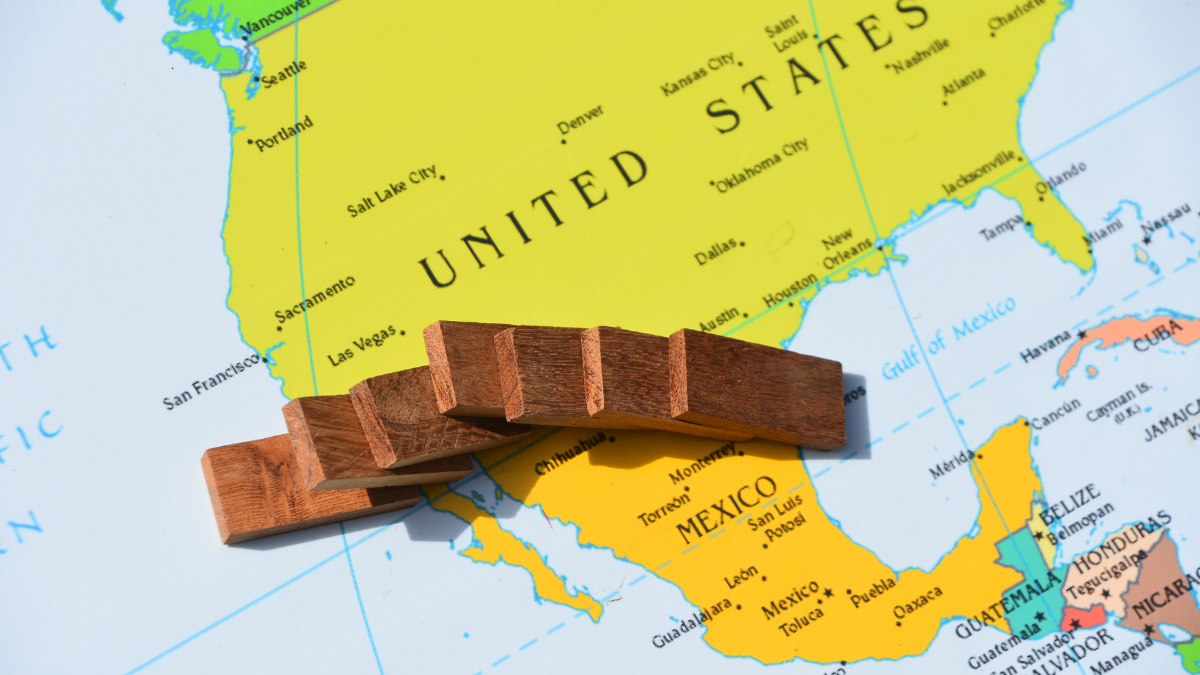Language:
A Comparative Analysis: Non-Extraterritorial Application of Trademark Law in the US and Mexico.
August 30, 2023
Introduction: In a recent landmark decision, the U.S. Supreme Court ruled in Abitron Austria GmbH v. Hetronic International, Inc., that the Lanham Act cannot have extraterritorial application. This decision reaffirms that trademark use and infringement must occur within the United States for the Lanham Act to apply. Interestingly, in Mexico, the Federal Law for the Protection of Industrial Property follows a similar approach, emphasizing that trademark use subject to infringement claims must also take place within Mexico, thus sharing the fundamental principle that jurisdictional boundaries are crucial in determining trademark infringement.
The Abitron Austria GmbH v. Hetronic International, Inc. Case. serves as a reminder that, as a rule, for a trademark infringement claim to be valid under the Lanham Act, the alleged use of the trademark and the infringement must both transpire within U.S. territory. The Mexican Federal Law for the Protection of Industrial Property aligns with this principle established by the U.S. Supreme Court, by explicitly enunciating all activities that can be deemed as trademark use in Article 387 of the Law, and linking this notion to Article 62 of the Regulations, which provides that it shall be understood that a trademark is in use, among other cases, when the products or services it distinguishes have been placed in commerce or are available in the market in the country under that mark, in the quantity and manner that corresponds to the uses and customs in trade. The trademark shall also be deemed to be in use when applied to products intended for export.
The law emphasizes the importance of geographical boundaries in trademark disputes and reinforces the necessity for infringement acts to be linked to Mexico for legal action under Mexican jurisdiction. This landmark case in the USA reminded us of a case handled some years ago by our firm, that further illustrates the alignment between the U.S. Supreme Court’s decision and Mexican trademark law. In a notable trademark infringement case, renowned actor Jaime Camil filed a legal action with the Mexican Patent and Trademark Office (PTO), alleging unauthorized use of his registered trademark, his artistic name, and his image. The case unfolded when Jaime Camil discovered advertising materials bearing his name and image in a convenience store located in Puerto Rico. These materials were associated with products that did not carry complainant’s name or image; however, plaintiff alleged that the advertising materials found in Puerto Rico, derived from a license agreement that had been terminated with a former Mexican licensee, who was based in Mexico, and therefore represented an IP infringement in Mexico. Complainant claimed that his name was registered as a trademark in Mexico, and therefore, the unauthorized use of his name and image on advertising materials in Puerto Rico, constituted trademark and copyright infringements under Mexican law.
Representing defendant we produced counterarguments and evidence demonstrating: i)Lack of Ownership of the convenience store located in Puerto Rico, where complainant found the advertising materials featuring his trademark, name and image; ii) that the defendant had fully respected the termination of the licensing agreement with complainant and had appropriately instructed the party responsible for marketing the products in Puerto Rico to retrieve any advertising materials featuring Camil’s name and image; iii) that defendant’s current products, including those marketed in Puerto Rico, did not bear complainant’s name and image.
Despite the defendant’s arguments, both the Mexican Trademark Office (IMPI) and the Appeal Court (FCAA) ruled in favor of Complainant, sustaining that while the infringing advertising materials were found in Puerto Rico, they were produced based on a license agreement executed in Mexico, and with a licensee based in Mexico. This “point of contact” with Mexico supposedly provided the basis for the Mexican authorities to assert jurisdiction over the case. However, during the Amparo stage, the case underwent intense debate and analysis, and our law firm successfully persuaded the Federal Circuit Courts that the Mexican PTO lacked the authority to make an extraterritorial application of the Law of Industrial Property. We were able to establish, among others, that although the license agreement had been executed in Mexico, and although defendant was based in Mexico as well, the alleged trademark and copyright infringements occurred outside of Mexico’s jurisdiction, and therefore, the alleged point of contact was not good enough for IMPI to make an extraterritorial application of the law. In the end, the Federal Circuit Courts ruled in favor of the defendant, denying any trademark and copyright infringements against them. The courts acknowledged the lack of extraterritorial application of Mexican trademark law, emphasizing that as a rule, for a trademark infringement to be actionable, it must occur within Mexican territory.
Conclusion: In light of the U.S. Supreme Court’s decision and the Mexican regulation on trademark use, it becomes evident that both jurisdictions adhere to a consistent and sensible approach. Trademark use and infringement claims must be firmly tied to the respective countries’ borders for their trademark laws to be applicable. These cases also shed light on the complexities of trademark infringement cases with international elements. As businesses continue to operate globally, this harmonious alignment emphasizes the significance of respecting territorial boundaries when enforcing trademark rights in the United States and Mexico. Understanding these jurisdictional principles, as well as counting on the proper local legal counseling is paramount in safeguarding trademarks and maintaining legal compliance in both countries, specially considering that the recent evolution of Mexican trademark Law now allows for directly claiming damages derived from IP violations, either before civil courts or with the Mexican Trademark Office itself. At OLIVARES we can assist you with any queries or legal assistance you may need in connection with specialized trademark litigation.



